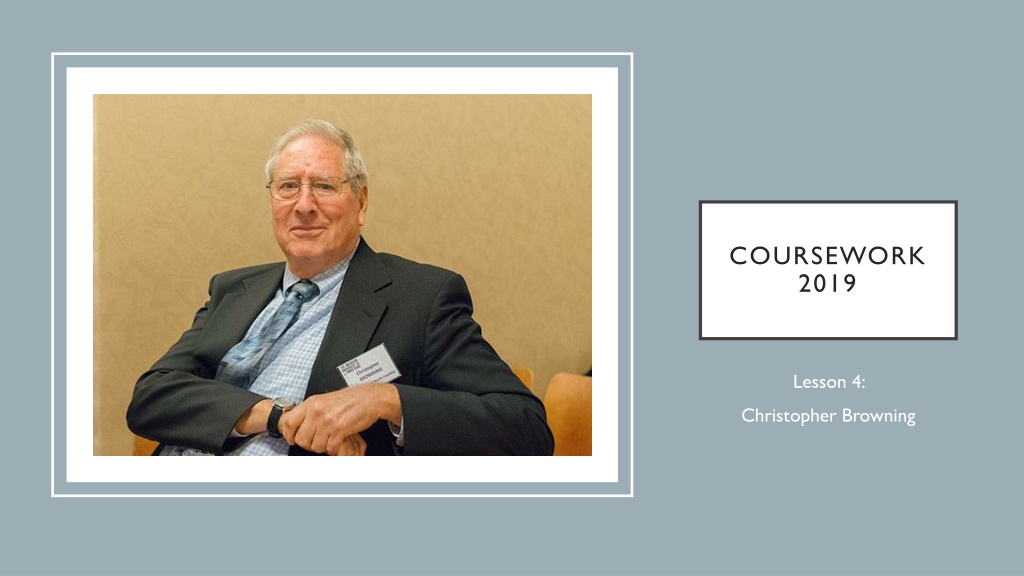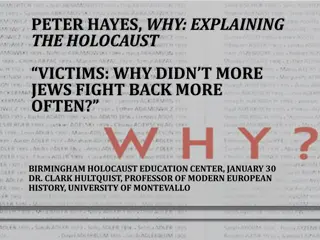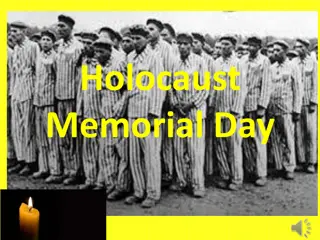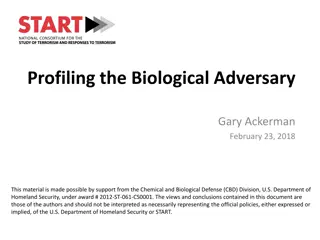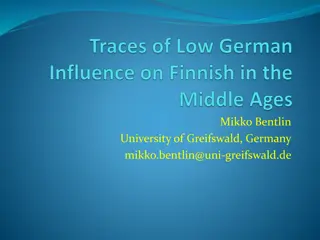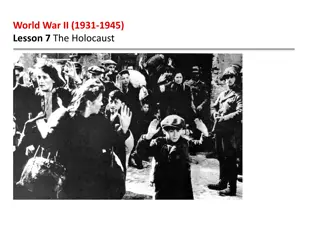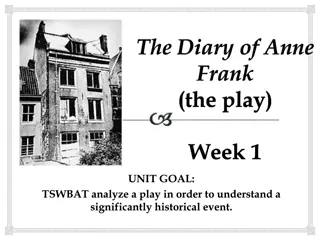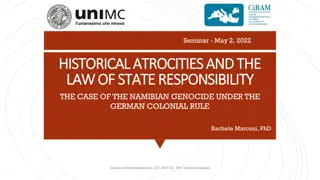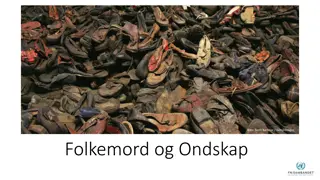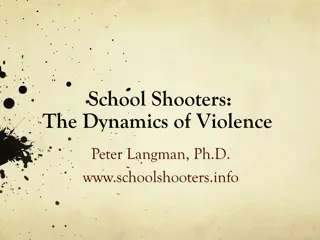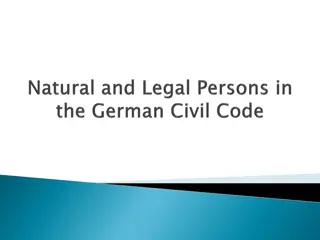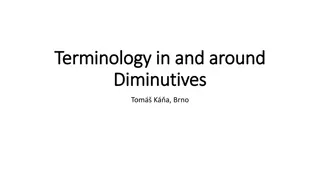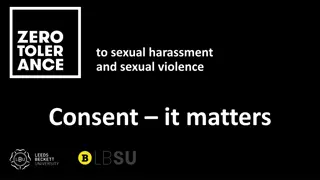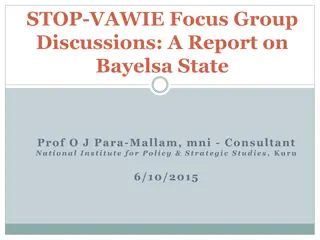Understanding the Actions of German Holocaust Perpetrators
Christopher Browning's research focuses on Police Battalion 101, revealing they were ordinary German men, not dedicated Nazis. These men were primarily middle-aged, working-class individuals who participated in the Józefów massacre during World War II. Browning's analysis delves into the motivations and actions of these individuals within the Holocaust context.
Download Presentation

Please find below an Image/Link to download the presentation.
The content on the website is provided AS IS for your information and personal use only. It may not be sold, licensed, or shared on other websites without obtaining consent from the author. Download presentation by click this link. If you encounter any issues during the download, it is possible that the publisher has removed the file from their server.
E N D
Presentation Transcript
COURSEWORK 2019 Lesson 4: Christopher Browning
AO3: CHRISTOPHER BROWNING How does Browning understand the actions of German Holocaust perpetrators? How far were German people involved in the Holocaust? To what extent is Christopher Browning a strong historian
WHO ARE POLICE BATTALION 101? Christopher Browning s Ordinary Men is centred on the actions and motivation of German people in Police Battalion 101. Central to coursework, is being able to write concisely. Below is a 163 word paragraph that explains who Police Battalion 101 are. Your job is to write a new, shorter, paragraph that does not lose key information about the Battalion. (Note: You will be able to use this paragraph in your final coursework!) The J zef w Massacre was carried out by the men of Nazi German Reserve Police Battalion 101, led by Major Wilhelm Trapp ( PappaTrapp ). The battalion had eleven officers, five administrators and 486 men. The servicemen of Police Battalion 101 were not dedicated Nazis, but ordinary Germans from Hamburg and the surrounding region. They were primarily Evangelical Protestants and most were older men with wives and families of their own. The average age in the battalion was thirty-nine, meaning most had grown up and experienced life before the rise of Hitler and Nazism. These men were also mostly from the working class, dock workers and truck drivers, but some were lower-middle class or skilled laborers. Few had been educated beyond the age of fifteen. The fact that these men were only police battalion members, and had not volunteered for the SS or Gestapo duty indicates that they were not particularly strong advocates of Nazism. By 1942 only 25% were members of the Nazi Party.
WHAT IS CHRISTOPHER BROWNINGS VIEW ON POLICE BATTALION 101? First we are going to look at Browning s argument in a simplistic format
WHAT IS CHRISTOPHER BROWNINGS VIEW ON POLICE BATTALION 101? You have been given a photocopy of Browning s Ordinary Men. TASK: Elaborate on the following issues that Browning raises when reflecting on the Jozefow massacre: Suddenness Conformity Choice Bermerhaven s reasoning Anti-Semitism Those who sought to evade shooting Revulsion/political and ethic motivation not to shoot Battalion bitterness after Jozefow
IS BROWNING A STRONG HISTORIAN? This is a strength in relation to my question because This is a limitation in relation to my question because Ordinary Men focuses on the years of the Holocaust Browning s thesis is influenced in part by the famous Milgram experiments. Whilst this experiment is seen as being conducted in a highly pressurised environment, they remain present in archives in the Office of the State Prosecutor in Hamburg. When David Irving (a Holocaust denier) sued Deborah Lipstadt for libel in 1996, Browning was one of the leading witnesses for the defence. Ordinary Men originated from a commission by Yad Vashem, the Israeli Holocaust museum Browning experienced a politically fraught America (Civil Rights, Vietnam, Watergate scandal), which led him to try and understand why good people could becoming implicated in terrible crimes Ordinary Men pays little attention to Hitler/the Nazi Movement Browning focuses his research on one Police Battalion
FURTHER READING HOMEWORK: Complete extra reading on Browning. You will get one stamp for every piece of information below that you engage with (4 stamps up for grabs!!) 1. https://www.youtube.com/watch?v=z_advxc5DTs here is a link to Browning talking at the University of Manchester about why perpetrators killed. 2. https://www.yadvashem.org/odot_pdf/Microsoft%20Word%20-%203848.pdf an interview with Christopher Browning 3. Christopher Browning, Ordinary Men the prefaceis really good for extra detail on Browning s context! 4. Christopher Browning, Ordinary Men the conclusion is really good for an big picture 1. pp.171-176 = Milgram Experiments 2. Pp.184-186 = conformity
